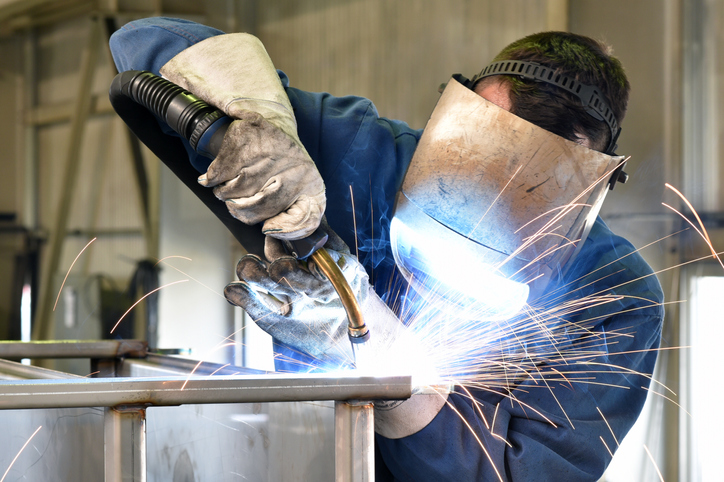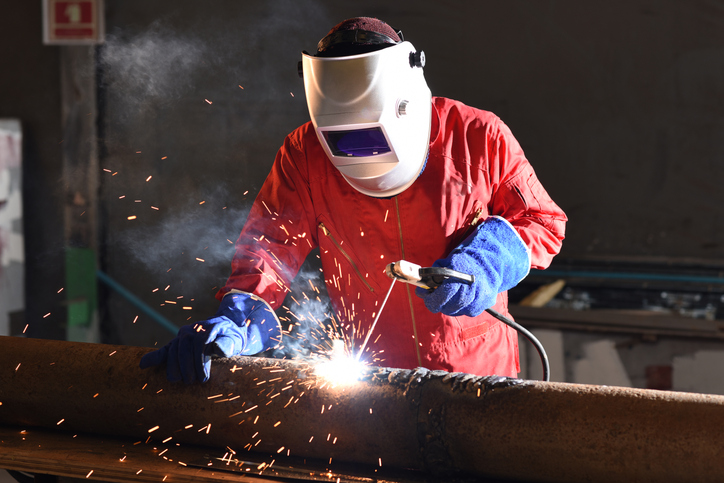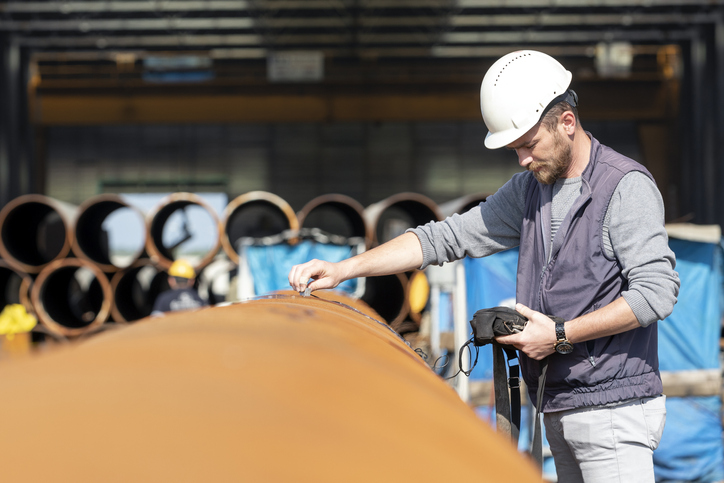Graduating from Welding College? Check Out the Career Paths Available to You
August 24, 2021
If you’re training to become a welding technician, you may be surprised to know that there are a wide range of career opportunities available to you upon graduating. With the skills you build in a welding technician program, you’ll be able to transition into a number of different work environments and career paths where your knowledge of welding principles will be applied to a variety of projects.
In a welding program, you’ll receive hands-on technical training in the welding arts, learning techniques in Gas Metal Arc Welding (GMAW or ‘MIG’), Gas Tungsten Arc Welding (GTAW or ‘TIG’), Shielded Metal Arc Welding (SMAW or ‘Stick’), and more. You’ll also learn about important safety procedures on the job, in addition to welding-associated mathematics and symbols. After completing your program, you’ll be able to transition into a number of different careers–some of which may require additional training or apprenticeships. Below, explore some career paths within the welding industry.
Become a Welding Technician After Welding Technician Training
Once you complete your welding technician training, one of the most direct career paths you can take is to become a welding technician. Welding technicians apply their knowledge of different welding techniques, materials, equipment, and joining processes to the manufacturing of welded products. These professionals assist welding engineers to develop and implement different techniques in order to produce a high-quality product–ensuring that the manufacturing process is in-line with industry standards and codes. They may work to solve problems, test new products, and perform experiments in order to identify the ideal welding process. If you have strong problem-solving skills, this could be the career path for you.

You Might Choose to Become a Boilermaker
One of the many specializations available within the welding industry is that of a boilermaker. Boilermakers work to install, maintain, repair, and manufacture the boilers within different buildings and ships. Boilers are responsible for heating up liquid in order to heat structures or generate electricity. As a boilermaker, you’ll work to interpret blueprints and assemble pre-made boiler components using different welding techniques. With your skills, you’ll be able to ensure that the boiler tank and system you manufacture is structurally sound so that it works safely and effectively.
A Career as a Welding Inspector Suits Those Attentive to Detail
With some additional experience in the welding industry, the knowledge you gain in welding college can translate to a future career as a welding inspector. Welding inspectors apply their knowledge of different welding processes, standards, materials, and methods of testing to the inspection of different welding processes. These professionals work to verify that the product being welded is done in compliance with different safety codes and industry standards–in addition to ensuring that the correct materials and equipment is being used. Their expertise is critical when it comes to ensuring the safety and soundness of the welding project. If there are any mistakes or discrepancies, welding inspectors are responsible for catching them and developing a sound solution. If you have a keen eye for detail, consider this career path after completing your welding training.

You’ll Be Qualified to Become a Pipefitter
Pipefitters have a dynamic and important job within the industrial manufacturing industry. These professionals are responsible for creating, assembling, installing, and maintaining piping systems used in commercial, marine, or industrial structures. The piping systems they create are typically used to transport fuel, water, chemicals or steam, and often include technical assemblies with hydraulic, high-pressure, cooling, or pneumatic functions. Within this specialized career, pipefitters apply their understanding of piping systems to the implementation of different design plans–creating and maintaining piping systems by applying welding, cutting, and fabrication techniques. If you’re looking for a hands-on technical career in the welding industry, this could be the job for you.
Are you ready to enroll in welding classes?
Gain the skills to launch a dynamic career with a program at the North American Trade Schools!



